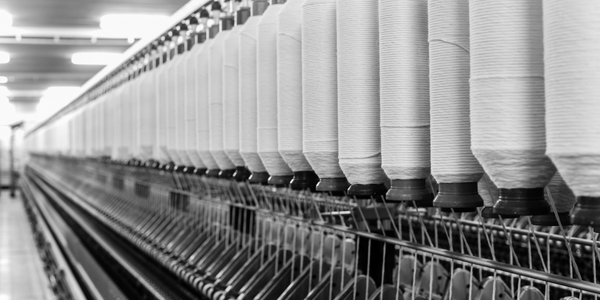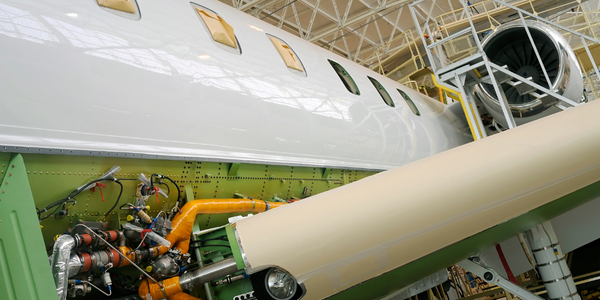下载PDF
Implementing CAE into the Design Process for Composite Tennis Racquets at Wilson Sporting Goods
技术
- 分析与建模 - 数字孪生/模拟
- 基础设施即服务 (IaaS) - 虚拟私有云
适用行业
- 航天
- 服装
适用功能
- 产品研发
用例
- 数字孪生
- 虚拟现实
服务
- 测试与认证
挑战
Wilson Sporting Goods Co. 是一家领先的高性能运动器材制造商,在开发网球拍设计时希望缩短设计周期并提高产品价值。该公司希望利用模拟、自动化和优化技术来实现这一目标。威尔逊的创新中心威尔逊实验室对探索可应用于其复合网球拍线的层压复合材料有限元分析 (FEA) 的发展特别感兴趣。他们的目标是在几何方面完成一些独特或有机的东西。在此之前,复合材料的有限元分析在球拍行业中几乎不存在。威尔逊认识到其作为叠层设计以及重量、强度、刚度和简单性优化的更好工具的潜力,决定在行业中采用该技术方面发挥主导作用。
关于客户
Wilson Sporting Goods Co. 是世界领先的高性能运动器材、服装和配件制造商。一个多世纪以来,他们一直致力于为网球、高尔夫、棒球、篮球、橄榄球、足球、排球、垒球等运动员创造、设计和生产运动器材。威尔逊不断改进数百万人参与和享受体育运动的方式。在体育界,竞争非常激烈,运动员与其装备之间的关系非常密切。考虑到这种动态关联,威尔逊的创新中心威尔逊实验室采用最先进的运动技术和专业知识,发明、设计和制造改变游戏规则的产品。在其球拍运动业务中,威尔逊实验室的创新举措包括材料增强、机械增强以及球拍物理参数的改变,以适应运动员比赛不断变化的趋势。
解决方案
Wilson Labs 设计工程师 Bob Kapheim 开始熟悉 Altair 的 HyperWorks® 软件和 Altair ProductDesign 工程服务。 Altair ProductDesign 团队为 Wilson 进行了软件仿真和测试关联,而无需首先投资软件。 Altair 在航空航天等行业的复合材料模拟方法方面拥有丰富的经验,能够将该技术应用于网球拍的复合材料模拟。工作的初始部分是根据所提供的几何形状构建有限元模型来完成的,该几何形状代表未钻孔、未握持且无手柄的球拍的外模线 (OML)。层压板的建模保持在简化的水平。对于每个层,都会检查铺层文件以了解层位置,然后修剪和组织表面。指定了层厚度以及材料特性。还应用了载荷和边界条件。使用 Altair 的结构分析和优化软件 OptiStruct® 进行了多项分析,并验证了结果与物理测试数据的相关性。
运营影响
数量效益
相关案例.

Case Study
Fire Alarm System and Remote Monitoring Sytem
Fire alarm systems are essential in providing an early warning in the event of fire. They help to save lives and protect property whilst also fulfilling the needs of insurance companies and government departments.Fire alarm systems typically consist of several inter-linked components, such as smoke detectors, heat detector, carbon monoxide, manual call points, sounders, alarm and buzzer. The fire alarm system should give immediate information in order to prevent the fire spread and protect live and property.To get maximum protection a shoe manufacturer in Indonesia opted for a new fire alarm system to monitor 13 production sites spread over 160 hectars. Although the company had an existing fire alarm system, it could not be monitored remotely.It was essential that the new system would be able to be monitored from a central control room. It needed to be able to connect to the existing smoke detector and manual call point. Information should be easily collected and passed on to the Supervisory Control and Data Acquisition (SCADA) system. Furthermore, the system should have several features such as alarm management, auto reporting, being connected to many client computers without additional cost, and run 24/7 without fails. The company also needed a system which could be implemented without changing the architecture of the existing fire alarm system.

Case Study
IoT Applications and Upgrades in Textile Plant
At any given time, the textile company’s manufacturing facility has up to 2,000 textile carts in use. These carts are pushed from room to room, carrying materials or semi-finished products. Previously, a paper with a hand-written description was attached to each cart. This traditional method of processing made product tracking extremely difficult. Additionally, making sure that every cart of materials or semi-finished products went to its correct processing work station was also a problem. Therefore, the company desired an intelligent solution for tracking assets at their factories. They also wanted a solution that would help them collect process data so they could improve their manufacturing efficiency.

Case Study
Airbus Soars with Wearable Technology
Building an Airbus aircraft involves complex manufacturing processes consisting of thousands of moving parts. Speed and accuracy are critical to business and competitive advantage. Improvements in both would have high impact on Airbus’ bottom line. Airbus wanted to help operators reduce the complexity of assembling cabin seats and decrease the time required to complete this task.

Case Study
Aircraft Predictive Maintenance and Workflow Optimization
First, aircraft manufacturer have trouble monitoring the health of aircraft systems with health prognostics and deliver predictive maintenance insights. Second, aircraft manufacturer wants a solution that can provide an in-context advisory and align job assignments to match technician experience and expertise.

Case Study
Aerospace & Defense Case Study Airbus
For the development of its new wide-body aircraft, Airbus needed to ensure quality and consistency across all internal and external stakeholders. Airbus had many challenges including a very aggressive development schedule and the need to ramp up production quickly to satisfy their delivery commitments. The lack of communication extended design time and introduced errors that drove up costs.






